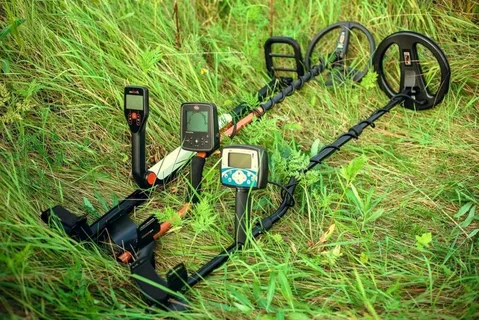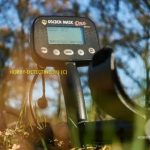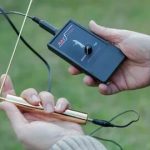Detector, metal detector, can be an exciting and rewarding hobby for those who have a passion for exploration and history. In this beginner’s guide, we will explore the world of metal detecting and provide valuable tips and techniques for discovering hidden treasures. Whether you’re a novice or an experienced detectorist, this guide will help you unlock the potential of your metal detector and uncover valuable artifacts and coins waiting to be found. Join us on a journey of discovery as we delve into the world of metal detecting and unearth its hidden treasures.
“Discover Hidden Treasures with a Metal Detector: A Beginner’s Guide” provides a comprehensive introduction to the world of metal detecting. The book covers everything from choosing the right equipment to understanding the different types of metal detectors and their uses. It also offers tips and techniques for successful treasure hunting and advice on staying within the legal limits of metal detecting. Whether you’re a complete novice or just looking to improve your skills, this book is an invaluable resource for anyone interested in the hobby.
10 Essential Tips for Using a Metal Detector Safely
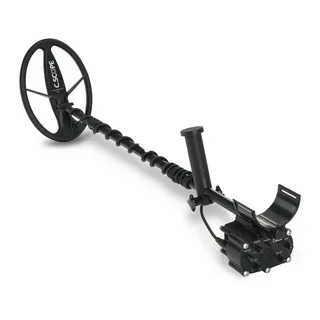
1. Always wear gloves and goggles when using a metal detector to protect your hands and eyes from sharp or hazardous objects.
2. Familiarize yourself with the specific settings and functions of your metal detector before using it to maximize its effectiveness.
3. Obtain permission before using your metal detector on private property to avoid trespassing and potential legal repercussions.
4. Be mindful of your surroundings and avoid disturbing natural habitats or historical sites while using your metal detector.
5. Properly dispose of any trash or debris you encounter while metal detecting to leave the area cleaner than you found it.
6. Use a small hand trowel or shovel to carefully dig up targets, being cautious not to damage any artifacts or underground infrastructure.
7. Be respectful of other people’s privacy and property while using your metal detector in public spaces.
8. Stay aware of any local regulations or laws regarding metal detecting, as certain areas may have restrictions on this activity.
9. Consider joining a metal detecting club or community to learn from experienced hobbyists and gain access to group outings.
10. Always properly clean and maintain your metal detector to ensure its longevity and continued functionality.
Choosing the Right Metal Detector for Your Needs

Choosing the right metal detector for your needs depends on several factors, including your level of experience, budget, and where you plan to use it. Entry-level metal detectors are suitable for beginners and hobbyists, while advanced detectors with a wide range of features are better for more experienced users. Consider the types of targets you want to find and the conditions you’ll be detecting in, such as on land or in water. It’s also important to read reviews and research different models before making a purchase to ensure you’re getting the best metal detector for your specific needs.
The History and Evolution of Metal Detectors
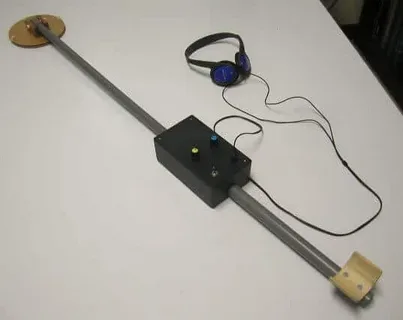
Metal detectors have a long and diverse history that dates back to the late 19th century. The first patent for a metal detector was filed in 1881 by Alexander Graham Bell for the purpose of locating metal objects in human bodies. It wasn’t until the early 20th century that the first practical metal detectors were developed for military use, specifically to locate landmines and unexploded ordnance.
Throughout the 20th century, metal detectors evolved significantly, with advancements in technology leading to smaller, more portable, and more sensitive devices. These developments made metal detectors increasingly popular for use in a variety of applications, including archaeology, security screening, and treasure hunting.
In recent years, the use of metal detectors has expanded even further, with specialized models designed for specific purposes such as gold prospecting, underwater use, and even food safety inspection in the manufacturing industry.
Today, metal detectors are a widely used tool with a wide range of applications, and continue to evolve with advancements in technology and materials.
Top 5 Metal Detector Finds of All Time
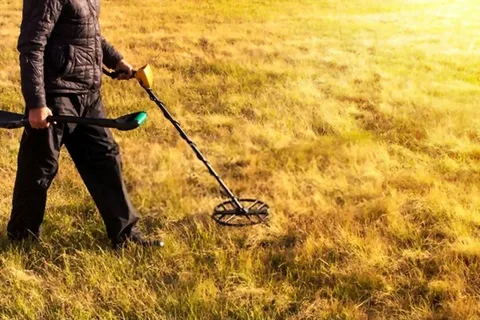
1. The Staffordshire Hoard – In 2009, a metal detectorist found over 3,500 Anglo-Saxon artifacts, including gold and silver items, in a field in Staffordshire, England. The hoard is valued at over £3.3 million and is considered one of the most significant archaeological finds in British history.
2. The Hoxne Hoard – Discovered in 1992 by a metal detectorist in Suffolk, England, the Hoxne Hoard is a collection of over 15,000 Roman-era gold and silver coins, jewelry, and silver tableware. The hoard is estimated to date back to the 4th and 5th centuries AD and is valued at over £2.3 million.
3. The Saddle Ridge Hoard – In 2013, a California couple stumbled upon a collection of gold coins while walking their dog on their property. The hoard, known as the Saddle Ridge Hoard, consisted of over 1,400 mint-condition gold coins dating from the 1840s and has an estimated value of over $10 million.
4. The Crosby Garrett Helmet – Discovered by a metal detectorist in Cumbria, England, in 2010, the Crosby Garrett Helmet is a rare Roman cavalry helmet dating from the 2nd or 3rd century AD. The intricately decorated helmet is considered one of the finest examples of Roman metalwork and is valued at over £2 million.
5. The Rosetta Hoard – Found in 2015 by a metal detectorist in Scotland, the Rosetta Hoard is a collection of gold and silver Viking artifacts, including a 9th-century silver cross and a gold pendant. The hoard is valued at over £2 million and provides valuable insights into Viking trade and craftsmanship.
Common Mistakes to Avoid When Using a Metal Detector
– Not properly ground balancing the metal detector, leading to inaccurate readings and missed finds
– Neglecting to adjust the sensitivity settings, resulting in an overwhelming number of false signals and potentially missing valuable targets
– Moving the coil too quickly or too high above the ground, reducing the detector’s ability to accurately pick up targets
– Failing to properly maintain and clean the metal detector, potentially causing malfunctions and reduced performance
– Not thoroughly researching and understanding the specific features and functions of the metal detector being used, leading to underutilization of its capabilities
How to Properly Maintain Your Metal Detector
To properly maintain your metal detector, you should regularly clean the coils to remove any dirt, debris, or corrosion that may accumulate. It is also essential to keep the shaft and handle clean and free from any build-up. Additionally, you should inspect the batteries and connections to ensure they are in good condition, and replace them as needed. It is also crucial to store your metal detector properly, in a dry and secure location when not in use, to prevent damage and prolong its lifespan. Regular maintenance and care will help ensure that your metal detector continues to function effectively for years to come.
The Science Behind How Metal Detectors Work
Metal detectors work on the principle of electromagnetic induction. They consist of a transmitter coil that creates a magnetic field and a receiver coil that detects any changes in the magnetic field caused by the presence of a metal object. When a metal object comes into the vicinity of the detector, it disrupts the magnetic field, causing a change in the voltage of the receiver coil. This change is then amplified and converted into an audible or visual signal to alert the user of the metal object’s presence. Different metals can produce different effects on the magnetic field, allowing metal detectors to differentiate between various types of metals. Additionally, the size and shape of the metal object can also affect the strength and pattern of the magnetic field disruption, providing further information to the metal detector user.
Metal Detectors: A Beginner’s Guide
Metal detectors are devices that use electromagnetic fields to detect the presence of metal objects. They are commonly used in a variety of applications, including security screening, treasure hunting, and geological exploration.
In the book Metal Detectors: A Beginner’s Guide, readers can learn about the history and development of metal detectors, as well as the various types and features available on the market. The book provides practical advice on how to choose the right metal detector for different purposes and how to use it effectively.
Additionally, the book covers topics such as the science behind how metal detectors work, tips for improving detection accuracy, and techniques for detecting and recovering buried items. It also includes information on legal and ethical considerations when using metal detectors in public or private spaces.
Whether you’re a beginner looking to get started with metal detecting as a hobby or a professional seeking to improve your skills, Metal Detectors: A Beginner’s Guide offers valuable insights and guidance for getting the most out of this technology.
Exploring the World of Metal Detecting as a Hobby
See also: gold detector metal
Exploring the world of metal detecting as a hobby can be a rewarding and exciting experience. Metal detecting allows enthusiasts to discover hidden treasures buried beneath the earth’s surface, from ancient artifacts to valuable coins and jewelry. It also offers the opportunity to explore new outdoor locations and learn about local history and heritage. With the right equipment and knowledge, metal detecting can be a fun and fulfilling hobby for people of all ages.
The Legalities of Metal Detecting on Public Land
Metal detecting on public land is subject to a variety of legal considerations and regulations. In many cases, metal detecting is allowed on public land, as long as it does not disturb natural or historical features, and as long as any items found are not removed from the site. However, specific rules and permit requirements can vary greatly from one location to another. Some areas may have strict regulations in place, while others may have no restrictions at all. It is important for metal detector enthusiasts to research and understand the rules and guidelines for metal detecting on public land in their specific area before engaging in the activity.


